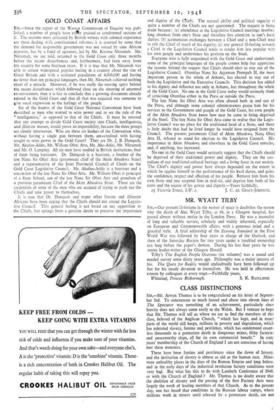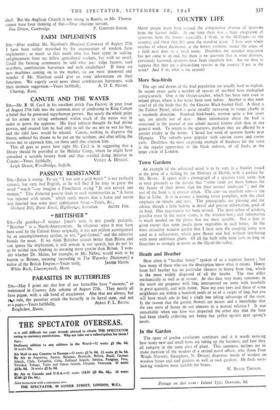CLASS DISTINCTIONS
SIR,—Mr. Arwyn Thomas is to be congratulated on his letter of Septem- ber 3rd. To concentrate so much hatred and abuse into eleven lines of The Spectator was something of an achievement, particularly since brevity does not always come easily to the Welsh. But I venture' to hope that Mr. Thomas will tell us where we are to find the members of this class, beloved of the Anglican Church, " which has kept, and in many parts of the world still keeps, millions in poverty and degradation, which has tolerated slavery, famine and pestilence, which has condemned count- less thousands to a premature death in dangerous mines, filthy factories and unseaworthy ships, all for its own commercial benefit." In sixty years' membership of the Church of England I am not conscious of having met these monsters.
There have been famine and pestilences since the dawn of history, and the institution of slavery is almost as old as the human race. Mines were unhealthy places in the days of the Roman Empire and long before, and in the early days of the industrial revolution factory conditions were very bail. But what has this to do with Lambeth Conference of 1948, or with the Church of England ? Mr. Thomas is no doubt aware that the abolition of slavery and the passing of the first Factory Acts were largely the work of leading members of that Church. As to the present day, one has heard that conditions in the Russian labour camps, where millions work in misery until released by a premature death, are not ideal. But'the Anglican Church is not strong in Russia, so Mr. Thomas cannot have been thinking of that.—Your obedient servant,



































 Previous page
Previous page